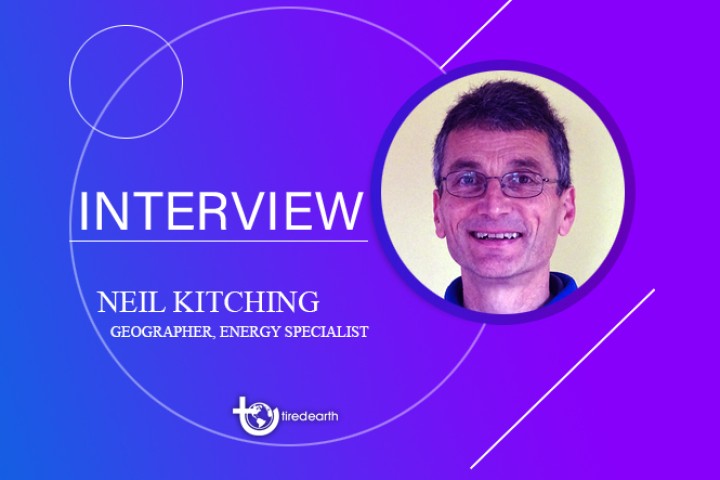Tired Earth: An Interview With Neil Kitching, Geographer and Energy specialist

1. How face masks, gloves and other coronavirus waste is polluting our planet?
Litter is a long standing issue. I remember collecting piles of rubbish off a remote beach on the island of Canna in the 1980's then burning it as there was no alternative. Now every time I go walking you see discarded face masks. I guess most have been dropped by accident. Few want to pick up these masks because of the actual or perceived risk of picking up the corona virus infection. Of course, this litter is just a drop in the ocean compared to the vast quantities of PPE that are used by medical staff and discarded in a controlled manner as clinical waste.
2. What are the states to take steps to prevent the pollution of coasts and oceans against PPE?
PPE is essential to protect medical staff and their patients. We need more innovation and trials, sponsored by governments, to create biodegradable PPE and potentially reusable PPE in some cases. Medical equipment can already be cleaned using autoclaves - sterilisation using pressurised steam.
The James Hutton Institute in Aberdeen is already undertaking research into multi-use, washable and environmentally friendly PPE materials, perhaps using bio-based materials. The aim is to have a circular economy without any waste.
3. How to properly recycle masks? What are the sustainable choices in this pandemic? Can we still live sustainably?
For the majority of the public the obvious choice is to choose masks that can be washed and reused. There is no point in buying so called recyclable plastic masks because recycling facilities will refuse to handle them. New biodegradable masks (with the exception of the elastic round your head) are becoming available but far better to reuse a mask. For medical staff the only solution at present is to incinerate waste and ideally to use the waste heat created to warm buildings via a district heat pipe network.
4. What's campaign like #maskuary role in increasing public awareness to deal with plastic pollution caused by PPE?
Public campaigns are great. We all have an immediate choice whether to use single use plastic face masks or washable reuseable ones. The single use ones are manufactured from oil and chemicals and most will be disposed of in sealed landfills where they will basically remain forever. Not a great choice if people are reminded to think about it.
Carbon Choices is available from the author at www.carbonchoices.uk or from Amazon at www.getbook.at/CarbonChoices

